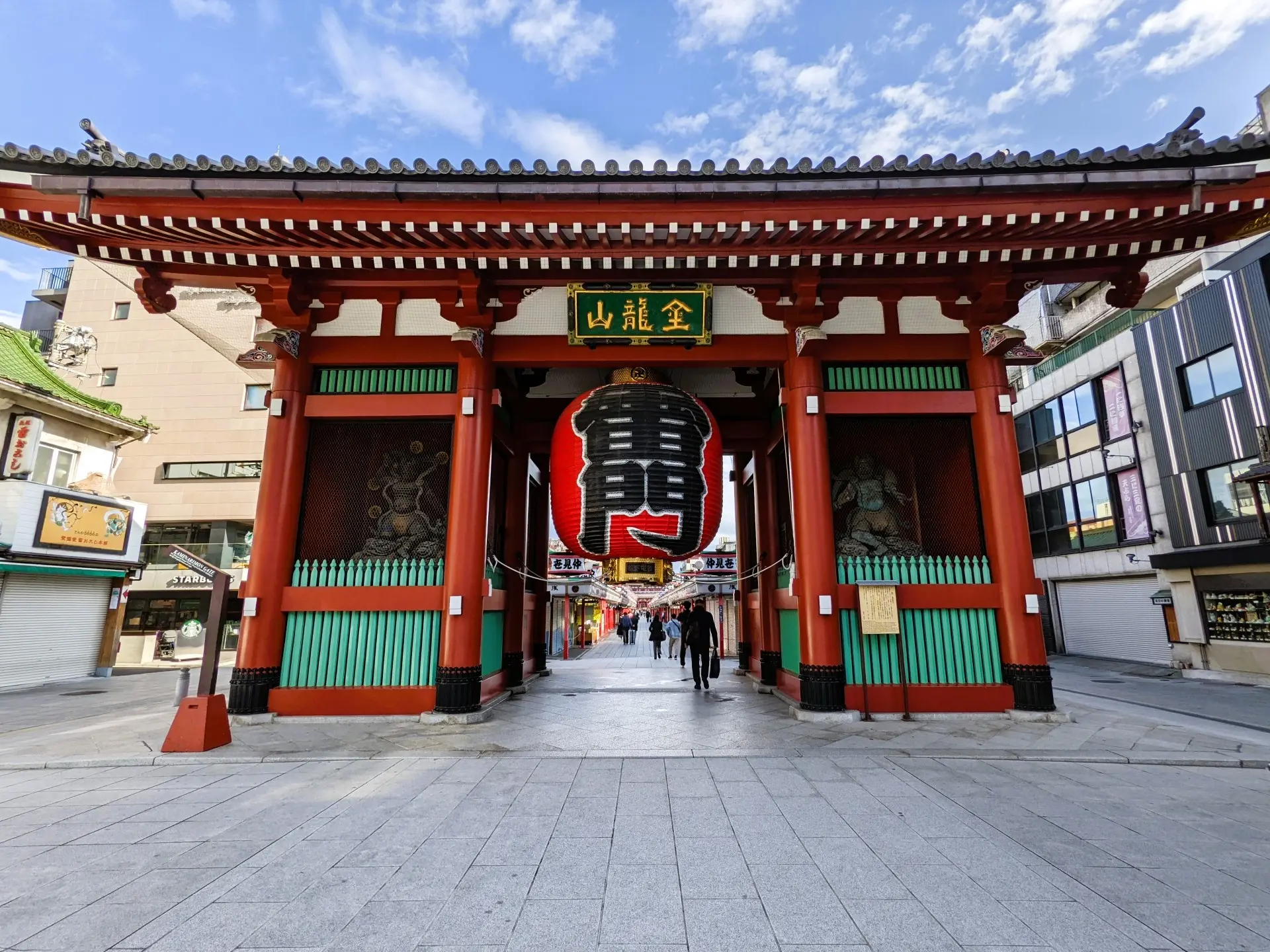Sensoji Temple, located in Asakusa, is Tokyo’s oldest and most famous temple. Built in 645 AD, it’s a must-see spot for anyone visiting Japan for the first time.
The temple is not only a place of worship but also a cultural hub, surrounded by historic streets and shops.
Highlights of Sensoji Temple
1. Kaminarimon (Thunder Gate)
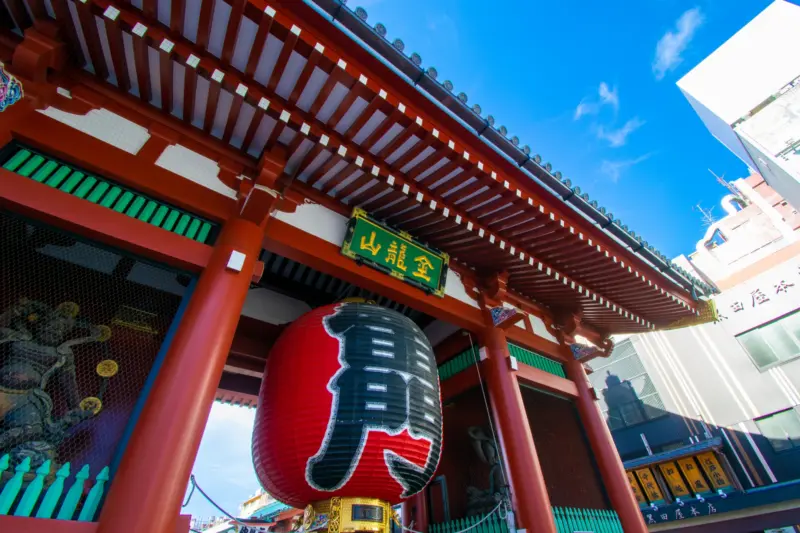
The Kaminarimon is the grand entrance to Sensoji Temple.
Why Visit: It has a massive red lantern and two guardian statues that protect the temple.
Details:
- The red lantern is huge! It’s 3.9 meters tall, weighs 700 kilograms, and is a favorite photo spot.
- The two statues are Fujin (the god of wind) and Raijin (the god of thunder). They bring protection and good fortune.
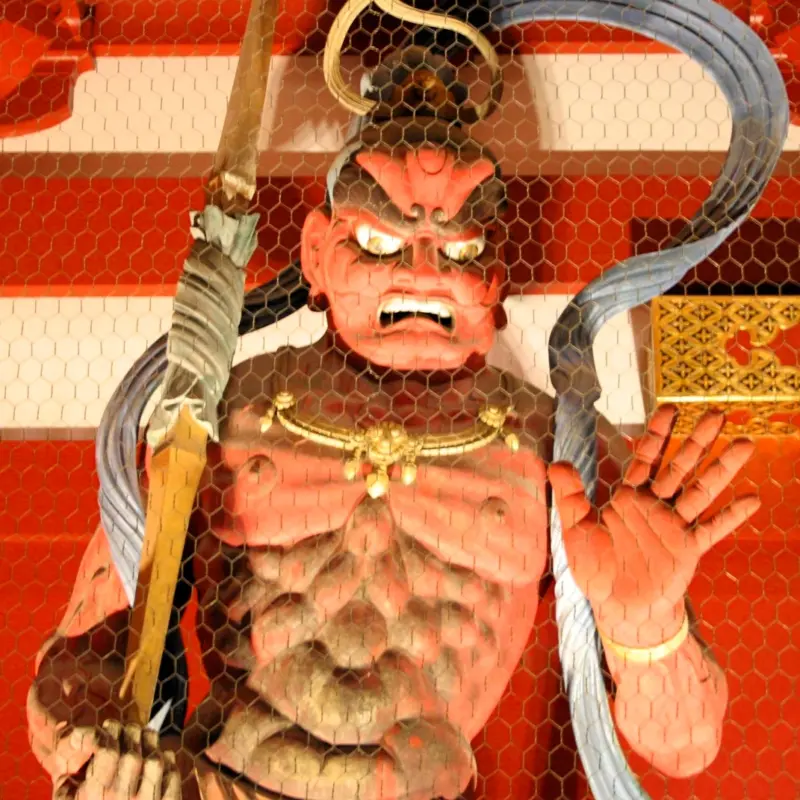
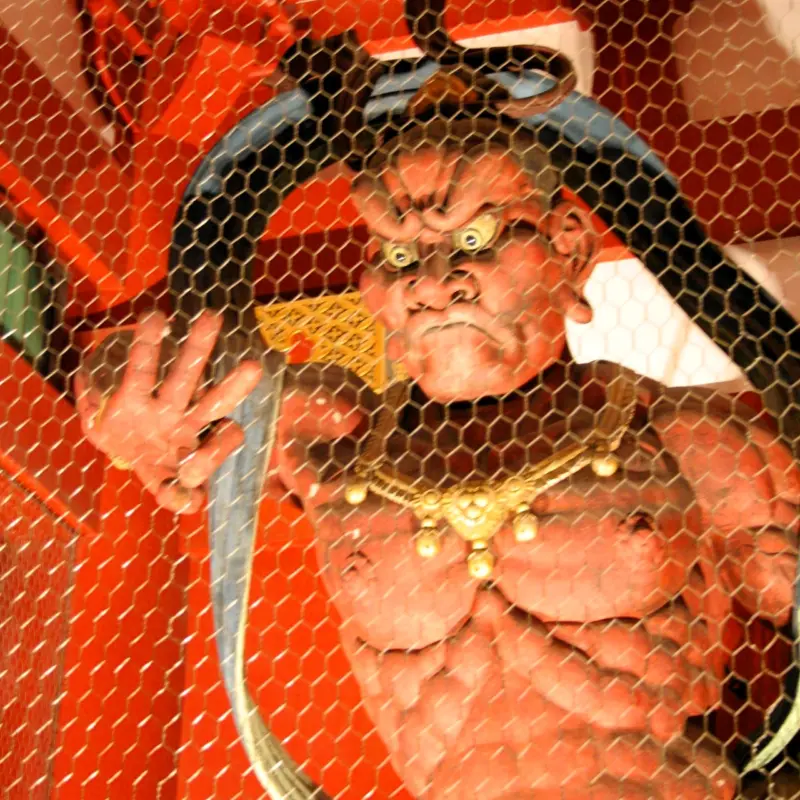
- The statues of Fujin (god of wind) and Raijin (god of thunder) guard the gate, representing protection and good fortune.
2. Nakamise Street
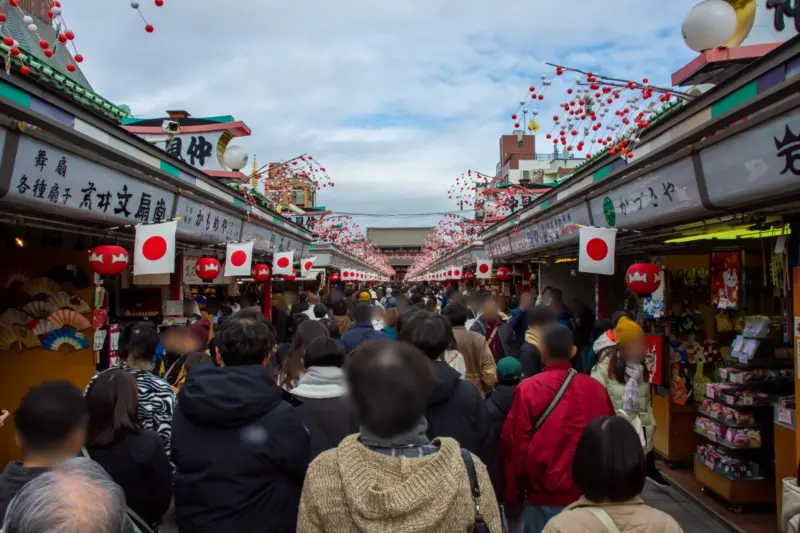
Nakamise Street is a busy shopping area right before the temple.
Why Visit: You can buy traditional snacks, souvenirs, and handmade crafts.
Details:
- The street is 250 meters long and has over 80 shops.
- Try ningyo-yaki (small cakes filled with sweet bean paste) or senbei (crispy rice crackers).
- You can also find traditional items like yukata (summer kimonos) and fans.
3. Hozomon Gate
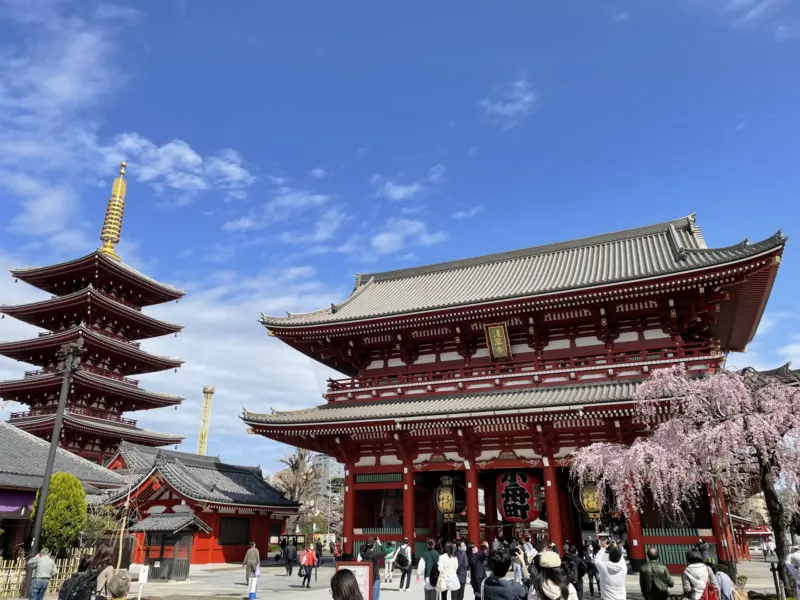
The Hozomon Gate is the second big gate leading to the sensoji temple.
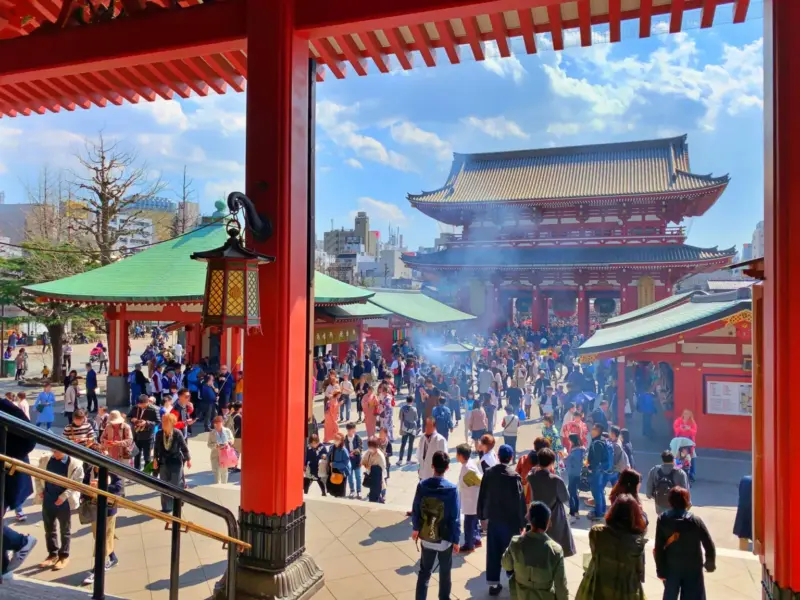
Why Visit: It’s an impressive structure and holds important Buddhist artifacts.
Details:
- The gate has two levels. Inside, you’ll find treasures and a pair of giant guardian statues.
- On the back of the gate, you’ll see enormous straw sandals that symbolize protection.
4. Main Hall (Kannon-do)
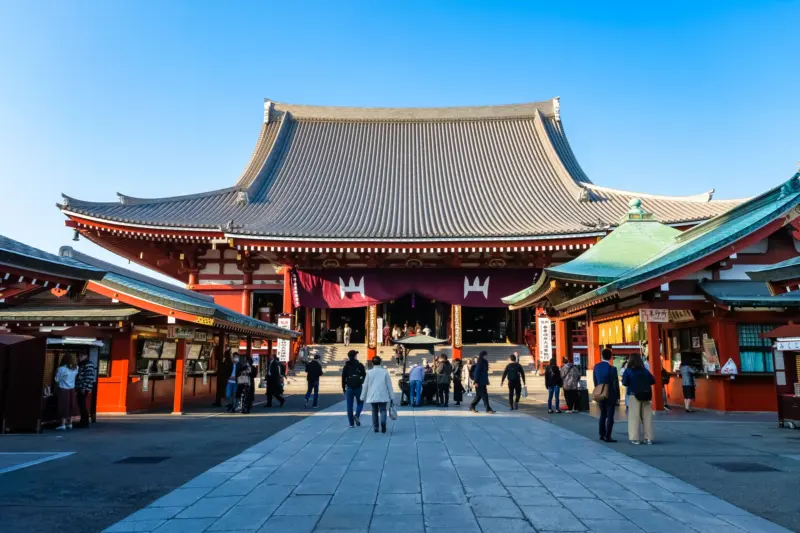
The Main Hall is the most important part of Senso-ji Temple.
- Why Visit: It’s where people pray to Kannon, the goddess of mercy.
- Details:
- The hall has beautiful wooden carvings and colorful decorations.
- A golden statue of Kannon is kept inside. It’s believed to bring peace and good fortune to visitors.
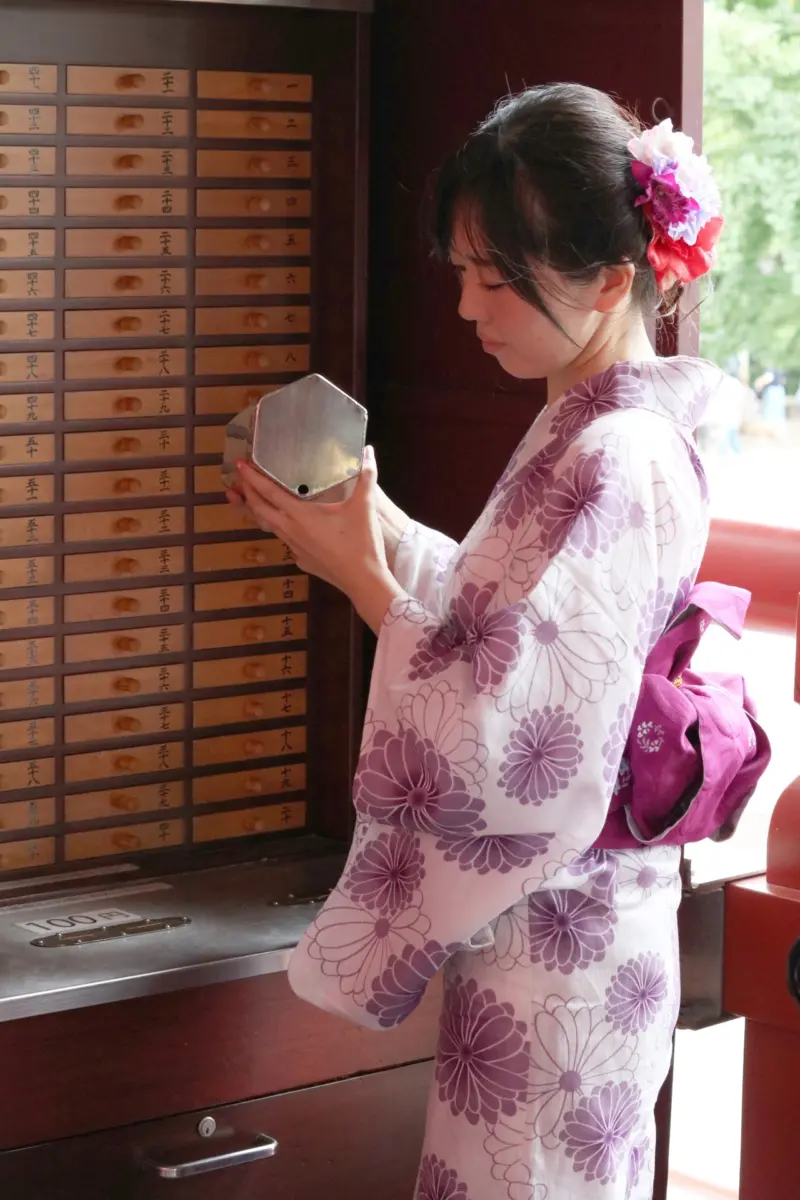
You can try drawing an omikuji (a fortune slip) to see your luck or buy charms for protection and success.
5. Five-Story Pagoda
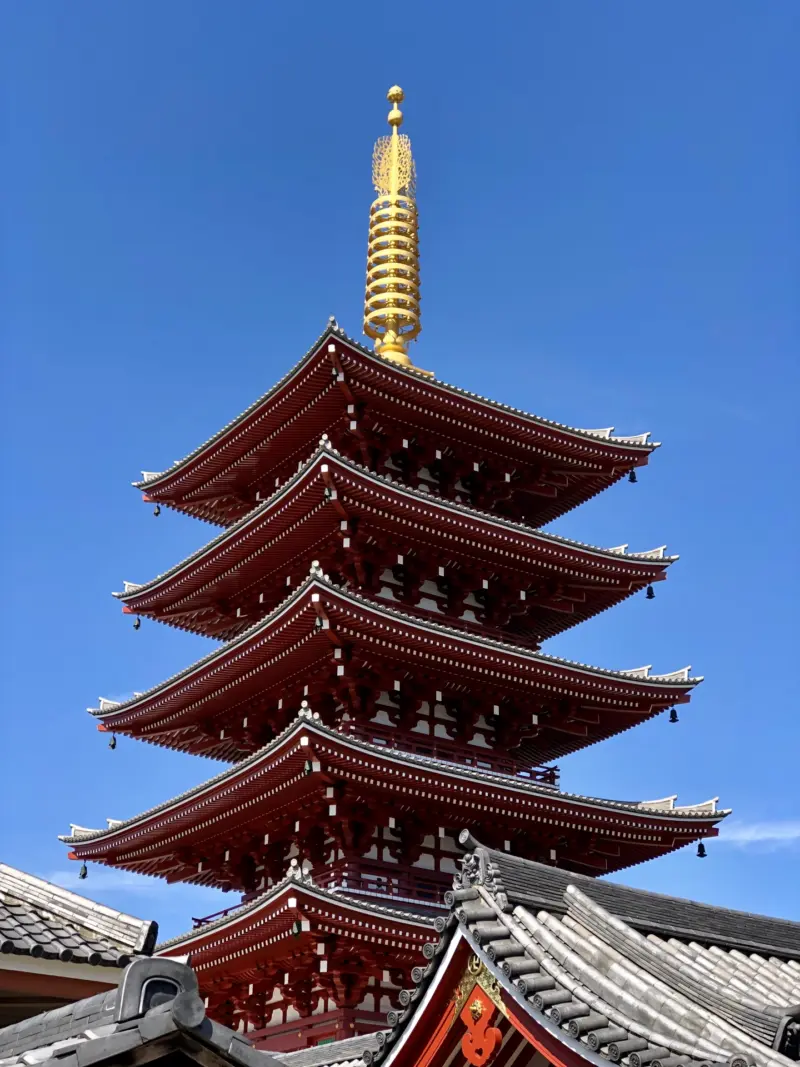
The Five-Story Pagoda is a tall and beautiful structure near the Main Hall.
Why Visit: It’s one of the most famous pagodas in Japan and a symbol of Senso-ji Temple.
Details:
- The pagoda is 53 meters (174 feet) tall and represents Buddhist teachings.
- It’s not open to visitors, but it’s amazing to see from the outside, especially when it’s lit up at night.
- The pagoda holds sacred Buddhist relics, making it a spiritual place.
Events and Seasonal Highlights
- Hozuki Ichi (July): The annual ground cherry market, where stalls sell hozuki plants and summer-themed items.
- Illuminations (Year-Round): The temple and its pagoda are beautifully lit up in the evenings, creating a magical atmosphere.
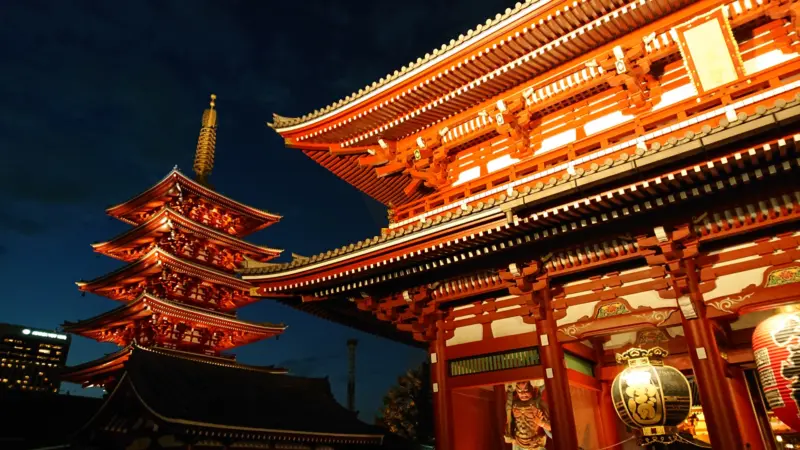
- Sanja Matsuri (May): One of Tokyo’s largest festivals, celebrating the spirits of the Asakusa area with vibrant parades and portable shrines.
Experience Local Culture
Visiting Senso-ji is not just about exploring the temple grounds—it’s a cultural immersion.
Try local delicacies from Nakamise Street, take part in traditional rituals like purifying yourself with incense smoke, or rent a kimono to fully experience the Asakusa vibe.
Location
Senso-ji is located in Asakusa, Taito City, Tokyo. It’s easily accessible from Asakusa Station, served by multiple train and subway lines.
Best Times to Visit
- Early Morning: Enjoy a peaceful visit before the crowds arrive.
- Evening: Experience the illuminated temple for a magical atmosphere.
- Seasonal Highlights: Visit during cherry blossom season (March-April) or autumn leaves (November) for stunning scenery.
FAQ
Yes! Senso-ji Temple is one of Tokyo’s top attractions. It’s the city’s oldest temple and has beautiful buildings, a lot of history, and Nakamise Street with shops and snacks to enjoy.
It’s free to visit Senso-ji Temple! You don’t have to pay to explore the temple grounds or Nakamise Street.
You can wear casual clothes like jeans or shorts. If you are attending a special ceremony, dress modestly.
Yes, you can visit Senso-ji Temple at night. The temple grounds are always open, and the buildings are lit up beautifully. It’s quiet and peaceful in the evening.
The best times to visit are early in the morning or late in the evening when there are fewer people. If you’re in Tokyo in May, don’t miss the Sanja Matsuri festival at Senso-ji!
| Name | Senso-ji (浅草寺) |
|---|---|
| Address | 2-3-1 Asakusa, Taito City, Tokyo 111-0032 |
| Access | A short walk from Asakusa Station on the Ginza, Asakusa, and Tobu Skytree lines. |
| Hours | Main Hall: 6:00 AM to 5:00 PM (March to October), 6:30 AM to 5:00 PM (November to February). Grounds open 24/7. |
| Admission | Free |
| Social Media | |
| URL | Visit Official Website |
| Map | View on Google Maps |

